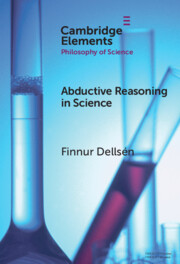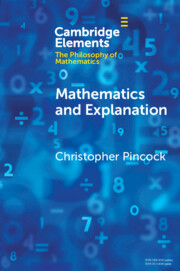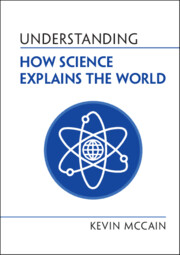Refine search
Actions for selected content:
22 results
‘…Or what’s a heaven for?’: the problem of unconceived alternatives in science and theology
-
- Journal:
- Religious Studies , First View
- Published online by Cambridge University Press:
- 06 November 2025, pp. 1-13
-
- Article
-
- You have access
- Open access
- HTML
- Export citation
The problem of unconceived alternatives in science and religion
-
- Journal:
- Religious Studies , First View
- Published online by Cambridge University Press:
- 16 September 2025, pp. 1-31
-
- Article
-
- You have access
- Open access
- HTML
- Export citation
Chapter 3 - Philosophy
-
-
- Book:
- On Discovery
- Published online:
- 05 May 2025
- Print publication:
- 22 May 2025, pp 35-46
-
- Chapter
- Export citation
10 - Realism and Antirealism
- from Part II - Ongoing Investigations
-
- Book:
- An Introduction to the Philosophy of Science
- Published online:
- 29 March 2025
- Print publication:
- 27 March 2025, pp 217-264
-
- Chapter
- Export citation
Explanatory Reasoning and Informativeness
-
- Journal:
- Canadian Journal of Philosophy / Volume 53 / Issue 5 / July 2023
- Published online by Cambridge University Press:
- 21 November 2024, pp. 433-443
-
- Article
-
- You have access
- Open access
- HTML
- Export citation

Abductive Reasoning in Science
-
- Published online:
- 03 June 2024
- Print publication:
- 17 October 2024
-
- Element
-
- You have access
- Open access
- HTML
- Export citation
5 - Science in Practice
-
- Book:
- The Philosophy and Practice of Science
- Published online:
- 17 September 2023
- Print publication:
- 31 August 2023, pp 138-301
-
- Chapter
- Export citation
On Inferring Explanations and Inference to the Best Explanation
-
- Article
-
- You have access
- Open access
- HTML
- Export citation

Mathematics and Explanation
-
- Published online:
- 27 April 2023
- Print publication:
- 25 May 2023
-
- Element
- Export citation
Chapter 8 - Explanation as Science (or Art?)
-
- Book:
- Explaining Management Phenomena
- Published online:
- 15 December 2022
- Print publication:
- 22 December 2022, pp 203-212
-
- Chapter
- Export citation
3 - Specific Kinds of Scientific Explanations
-
- Book:
- Understanding How Science Explains the World
- Published online:
- 17 June 2022
- Print publication:
- 07 July 2022, pp 29-42
-
- Chapter
- Export citation
8 - From Explanation to Knowledge
-
- Book:
- Understanding How Science Explains the World
- Published online:
- 17 June 2022
- Print publication:
- 07 July 2022, pp 86-101
-
- Chapter
- Export citation
6 - Explanatory Quality and Felt Understanding
-
- Book:
- Understanding How Science Explains the World
- Published online:
- 17 June 2022
- Print publication:
- 07 July 2022, pp 69-79
-
- Chapter
- Export citation
4 - Explanation and Prediction
-
- Book:
- Understanding How Science Explains the World
- Published online:
- 17 June 2022
- Print publication:
- 07 July 2022, pp 43-54
-
- Chapter
- Export citation
2 - The General Nature of Explanation
-
- Book:
- Understanding How Science Explains the World
- Published online:
- 17 June 2022
- Print publication:
- 07 July 2022, pp 13-28
-
- Chapter
- Export citation
1 - Why Explanation Matters in Science
-
- Book:
- Understanding How Science Explains the World
- Published online:
- 17 June 2022
- Print publication:
- 07 July 2022, pp 1-12
-
- Chapter
-
- You have access
- HTML
- Export citation
7 - False Theories, But Accurate Explanations?
-
- Book:
- Understanding How Science Explains the World
- Published online:
- 17 June 2022
- Print publication:
- 07 July 2022, pp 80-85
-
- Chapter
- Export citation
5 - Evaluating Explanations
-
- Book:
- Understanding How Science Explains the World
- Published online:
- 17 June 2022
- Print publication:
- 07 July 2022, pp 55-68
-
- Chapter
- Export citation

Understanding How Science Explains the World
-
- Published online:
- 17 June 2022
- Print publication:
- 07 July 2022
Chapter 8 - Concluding Remarks: Methods and Epistemic Sources in Metaphysics
-
- Book:
- A Minimal Metaphysics for Scientific Practice
- Published online:
- 04 August 2021
- Print publication:
- 01 July 2021, pp 203-216
-
- Chapter
- Export citation
